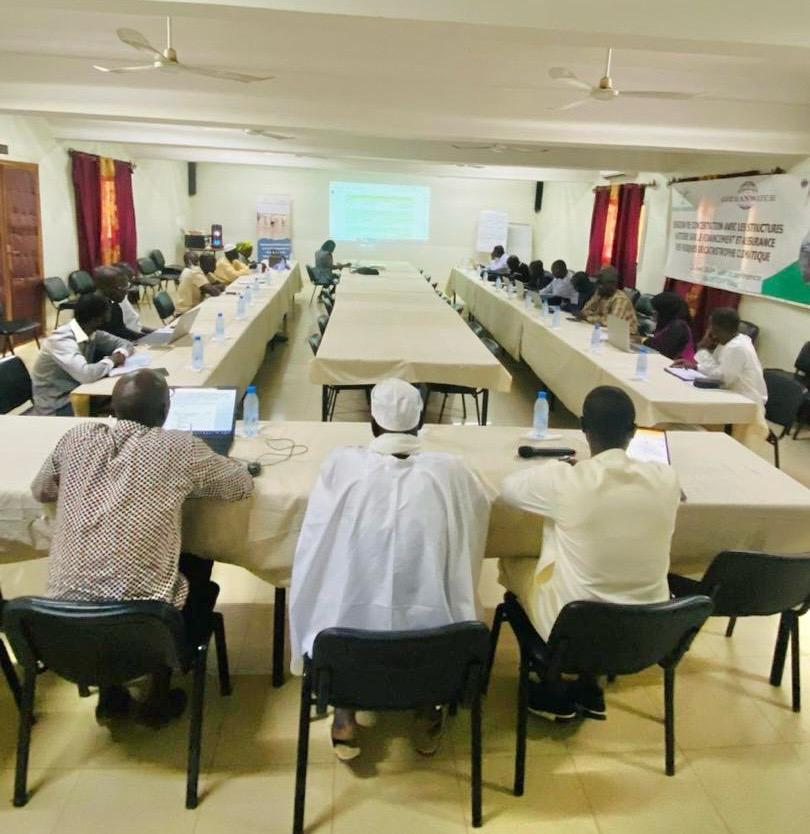
Index insurance, an essential lever for responding to climate shocks and ensuring livelihood security
The effects of climate change are increasingly palpable in Senegal, severely affecting sustainable development efforts. Phenomena such as rising sea levels, increasing temperatures, land salinization and desertification threaten key sectors of the economy, including agriculture, fisheries and water resources. These climate hazards increase the vulnerability of local populations, jeopardizing their livelihoods and food security.
Faced with this worrying reality, it is imperative to strengthen the resilience of communities and ecosystems by developing effective financing and insurance mechanisms against climate risks.
On June 25, 2024, as part of the Multi Actors Partnership (MAP) project, a consultation session was organized by ENDA ENERGIE, bringing together state and non-state actors from the Thiès region. The main objective of this meeting was to raise awareness and inform local stakeholders about the financing mechanisms available to manage risks related to climate disasters, in particular through tools such as index insurance and other climate finance mechanisms.
One of the key themes of the workshop was the presentation of climate finance mechanisms, in particular index insurance, which protects farmers by compensating for losses incurred in the event of climate disasters. This solution, still unknown to many local stakeholders, represents an essential lever for responding to climate shocks and ensuring the security of livelihoods.
The panel highlighted the challenges and perspectives related to adaptation to climate change. Discussions focused on local experiences, adaptation solutions already implemented, as well as the challenges faced by communities in accessing available financing and insurance.
The discussions highlighted the conclusions of recent studies on the impacts of climate change in the region, highlighting the urgency of action to protect people's livelihoods. Participants also explored in depth the various financing mechanisms available, some of which remain unknown at the local level.
The session also made it possible to popularize the results of research on losses and damages, particularly in the agricultural sector. Participants also had the opportunity to familiarize themselves with national and international financial instruments, thus strengthening their capacity to access sustainable financing mechanisms. It also highlighted local initiatives already in place to mitigate the impacts of climate disasters.
By bringing together various actors, such as representatives of civil society, producer organizations, local authorities and financial institutions, this consultation marked an important step in promoting concrete solutions to address the challenges of climate change in the Niayes region.
